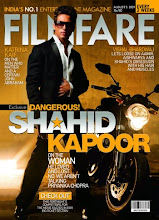An organ procurer promised Ponraj, 38, an auto rickshaw driver with a fourth-grade education, $2,500 for one of his kidneys. "Humans don't need two kidneys, I was made to believe," he says, now lamenting his decision. "I can sell my extra kidney and become rich, I thought." But he was swindled and received only half that much. And since the operation, Ponraj often misses work because of excruciating pain around his hip, pushing him more deeply into debt.
Many Indian cities, such as Chennai in southern India, are becoming hubs for the illicit kidney business, despite a 1994 ban on such trade in human organs. Organized rings of hustlers, working in cooperation with some doctors, prowl slum neighborhoods for vulnerable donors like Ponraj to supply a growing number of mainly foreign patients seeking kidney transplants.
In Gurgaon, an upscale Delhi suburb, the Indian police in late January dismantled an illegal organ racket—which authorities described as the largest ever broken up in India—that allegedly removed kidneys from about 500 laborers, the majority of them abducted or conned, and sold the organs to wealthy clients over a period of years. Police allege that the doctor, Amit Kumar, 40, drove around looking for possible donors, sometimes testing them on the spot with equipment in his car and other times luring them to an apartment where he has surgical gear.
Letters and E-mail messages from would-be transplant recipients in nine countries were discovered in Kumar's office, Indian authorities said. "It is believed that during the past eight years around 500 people were forcibly operated on and their kidneys transplanted to foreign patients in a secret operating theater," according to an Interpol alert for Kumar, who has evaded authorities in India.
Analysts say the kidney business thrives with foreigners drawn here for many of the same factors that have made India a top destination for medical tourism: low costs and highly qualified doctors. An illegal kidney transplant here can cost a third of the $70,000 price of the operation in China, not to mention avoiding the kind of strict organ-donation rules that apply in western countries.
Corrupt doctors in India work in tandem with organized middlemen adept at circumventing Indian law. The 1994 Transplant of Human Organ Act permits only relatives of patients to donate kidneys for transplantation (or a reciprocal arrangement between two needy families). But middlemen manage to masquerade donors as relatives or otherwise find ways to elude the rules, with little interest in the well-being of kidney providers.
A kidney recipient here may pay as much as $25,000 to illegally get a new organ, of which perhaps $2,500, and often half that much, goes to the donor, according to Action Aid India, an international NGO that has worked with kidney trade victims in the southern state of Tamil Nadu. That leaves a lot of money for unscrupulous organ hunters. "These middlemen act more like cut-and-grab men whose only interest is to hack out the organ," says Annie Thomas, a field coordinator for Action Aid in Chennai. "This is a reprehensible abuse of the poor, and this practice needs to be curbed."
In Korukkupet, a grubby Chennai slum seething with people, the trade is prevalent. Although there's no specific estimate, local activists claim it's hard to find a family here that doesn't have a member who has sold a kidney. A woman who goes by the name Muttama, a 29-year-old fish seller, says she was conned into selling a kidney for $1,250 two years ago. She says she was promised three times that much. She claims she sold her kidney through a local man, who goes from house to house to lure others to sell kidneys. " 'Follow my example,' he told me," Muttama remembers. " 'I was a very poor man. Now look at me. I became rich after I sold my kidney.' "
Other families interviewed in Korukkupet also identified the same individual as a kingpin in the kidney business, although he denies the allegations and authorities have not brought charges against him. Neighbors point to his house—grand compared with the surrounding sprawl of huts—where his wife can be seen wearing gold bangles, gold earrings, and a glittering necklace.

0 Comments:
Post a Comment